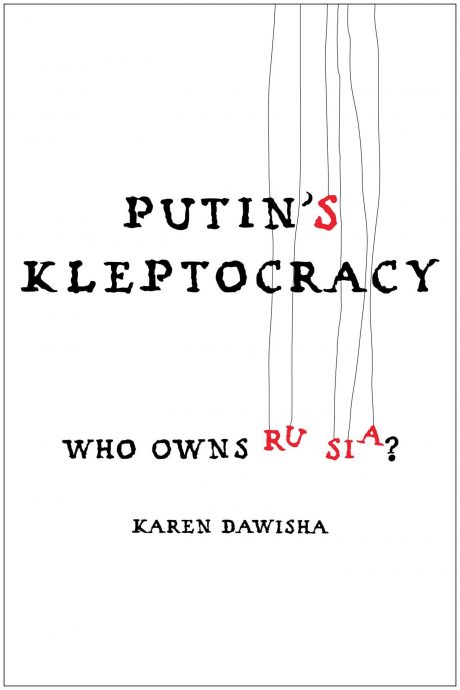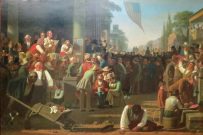Putin's Russia: A Conversation with Karen Dawisha
If there was any hope left that a Putin-led Russia might still transition to a democracy with a stable rule of law and truly independent civil society, Karen Dawisha’s Hayek Book Prize nominated Putin’s Kleptocracy would seem to have squashed it. Indeed, Dawisha argues that Putin basically rules through and with a criminal conspiracy whose goals are to “control privatization, restrict democracy, and return to Russia to Great Power (if not superpower) status.” She cites as powerful evidence the penalties imposed by the United States in April 2014 following the Russian invasion of Crimea. The American government didn’t primarily target Russia in its sovereign capacity, but instead issued asset freezes and travel bans on government elites connected to Putin. The best way to hurt the Russian regime was to issue private restrictions on many of its high-ranking officials.
Our knowledge of Putin largely owes to his clamp-down on journalists, speech, and protest rights that has grown worse over time, leading to widespread public resistance in 2011. By most accounts, Putin’s presidential win in 2012 has only led to an increase in repression of dissenting citizens.
Dawisha discusses that this pattern of rule began early in Putin’s political career. Putin began assembling his power base when he was deputy to the mayor of St. Petersburg. Here, he found a calling of sorts in his active management of power in St. Petersburg by allying with business, security, and political elites. He took these groups’ interests with him to Moscow in 1996 where he led the Federal Security Service. Called to Moscow for precisely his capacity to manage interests, Dawisha argues that “Putin and his circle sought to create an authoritarian regime ruled by a close-knit cabal with embedded interests, plans, and capabilities, who used democracy for decoration rather than direction.”
In the midst of Russian weakness in the 1990s, Dawisha discusses her documentation of Putin’s association with ex-KGB and former Communist Party politicians who believed in ‘revanche.’ They prepared for the moment of restoring Russian power, enlarging their wealth, and increasing their political power which was made possible with Putin’s presidential victory in 2000. And Dawisha observes that from the moment of Putin’s electoral triumph, “Russia ceased to be a place where democratic dreamers could flourish.”
Dawisha’s account of Putin also involves his “pleonexia” or nearly insatiable need for expensive personal items. Robert Kraft, owner of the New England Patriots, found this out the hard way in 2005, when Putin tried on Kraft’s first Super Bowl ring, encrusted with 4 carats of diamonds. Putin wouldn’t return it and departed the room, ignoring Kraft’s repeated demands to give it back. President Bush told Kraft that it would be better, foreign relations and all, if he stopped talking about it, and acknowledge that he had gifted it to Putin.



